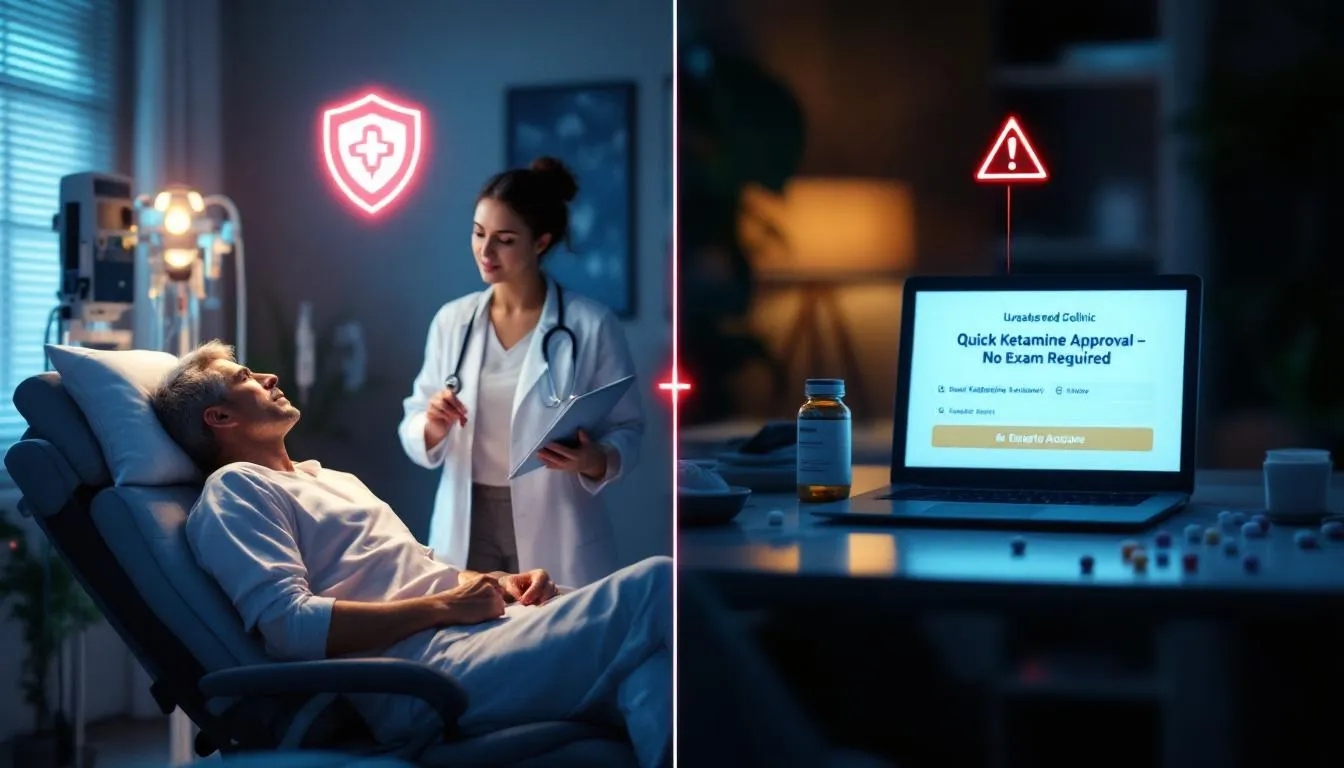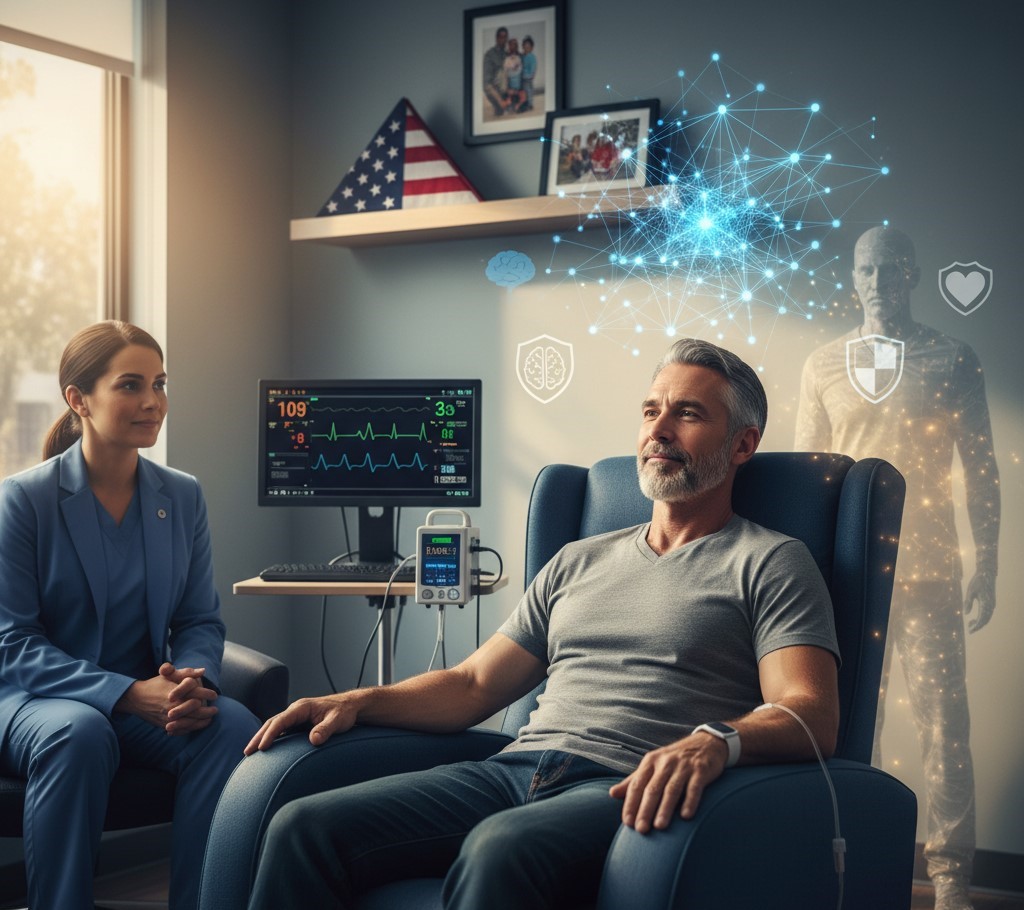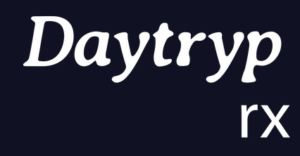Ketamine has moved from operating rooms to therapy rooms at a pace that has surprised both doctors and patients.
This anesthetic, originally developed from the street drug PCP, is now showing promise for people whose depression doesn’t respond to standard treatments.
Because it can quickly relieve severe depression and suicidal thoughts, more people are searching online for a “ketamine clinic near me” and reading reviews of the best ketamine clinics.
This guide explains what ketamine therapy is and why regulation matters, outlines the importance of integration support, offers a practical checklist to evaluate clinics, and points you to national directories where you can begin your search.
In This Article
- Understanding ketamine therapy
- Why licensing and medical oversight matter
- Checklist: How to evaluate a ketamine clinic
- National directories for finding providers
- Bringing it all together: Making an informed choice
- Ready to explore a healing journey?
Understanding ketamine therapy
Ketamine is a dissociative anesthetic that has been used for decades in surgery and veterinary medicine.
More recently, researchers discovered that low‑dose infusions can rapidly relieve treatment‑resistant depression (TRD).
Controlled trials have reported response rates as high as 64 % compared with 28 % for placebo, though the effect may last only a few days or weeks.
Because ketamine affects NMDA receptors and can elevate blood pressure or cause dissociation, it is usually reserved for people who have not responded to other treatments.
Esketamine (Spravato) is the only FDA‑approved form for hard‑to‑treat depression, and it must be given under medical supervision in a certified clinic.
Potential side effects
Ketamine’s side effects are usually temporary and may include dizziness, blurred vision, nausea, anxiety, or a sense of unreality.
People with certain medical conditions (such as psychosis, high blood pressure, heart disease, or substance‑use disorders) should avoid ketamine or use it only with strict medical oversight.
The FDA specifically warns against compounded lozenges and mail‑order products, noting that these unapproved formulations have not been evaluated for safety, and using them without monitoring can lead to serious adverse events.
There is no evidence that at‑home programs are safer or more effective than supervised infusions.
Why licensing and medical oversight matter

Many independent ketamine clinics are for‑profit businesses that appeared after esketamine’s approval.
Because ketamine is a controlled substance and an off‑label treatment for depression, proper oversight is crucial.
Here’s what to look for:
Qualified providers and thorough evaluation
Choose clinics staffed by board‑certified physicians (psychiatrists, anesthesiologists, or pain specialists) who understand dosing and how to handle complications.
Nurses or nurse anesthetists should monitor patients, and licensed mental‑health professionals should be available for psychological support.
Ask if providers belong to professional organizations like ASKP3, which indicates adherence to best practices. A responsible clinic will review your medical and mental‑health history, coordinate with your existing providers, and screen for conditions that make ketamine unsafe.
Beware of clinics that prescribe ketamine after only a brief online questionnaire.
Evidence‑based protocols
Look for clinics that follow protocols similar to those used in research studies: intravenous infusions at about 0.5 mg/kg over 40 minutes.
Some centers also offer intramuscular injections or oral lozenges; ask how they determine the dose and why one route is recommended over another.
Nasal esketamine must be administered in a certified clinic under direct supervision. Clinics should monitor your vital signs during and after treatment and have equipment to manage high blood pressure or other emergencies.
Avoid clinics that promote at‑home dosing or ship compounded ketamine without medical oversight; the FDA specifically warns that these practices can be dangerous.
Integration and aftercare
Integration refers to reflecting on the ketamine experience and applying new insights to everyday life.
Many reputable clinics include preparation sessions, therapy, or integration coaching and follow‑up calls so you can process emotions and translate insights into action.
If a provider offers only infusions with no psychological support, consider whether you’ll have the tools to integrate the experience.
Checklist: How to evaluate a ketamine clinic
Choosing the best ketamine clinic involves more than proximity. Use this checklist when researching providers:
- Verify credentials. Does the clinic have a board‑certified physician (psychiatrist, anesthesiologist, or pain specialist) on staff? Are nurses present to monitor infusions? Do they belong to professional associations like ASKP3?
- Understand the evaluation process. A responsible clinic will review your medical and mental‑health history, coordinate with your current providers, and screen for conditions that make ketamine unsafe.
- Ask about dosing protocols. What forms of ketamine do they offer (IV infusion, intramuscular injection, nasal spray, or lozenge)? How do they determine dose and length of infusion? Are they following evidence‑based guidelines?
- Check safety measures. Clinics should monitor blood pressure, heart rate, and oxygen during and after treatment, provide comfortable private rooms, and have emergency equipment on hand.
- Look for integration support. Do they offer psychotherapy sessions, integration coaching or referrals to therapists? Can you contact the staff between sessions if you need help?
- Evaluate the environment. Does the space feel calm, clean and inviting? A soothing setting enhances therapeutic outcomes. Feel free to tour the facility or view photos online.
- Review patient feedback. Seek out reviews from multiple sources. Look for mentions of professionalism, caring staff, and effective follow‑up. Be cautious of overwhelming hype or unrealistic claims.
- Consider cost and accessibility. Ask about the total cost of treatment, including maintenance sessions. Some clinics offer membership packages or sliding‑scale fees. Don’t assume the nearest provider is the best; quality care may be worth traveling for.
National directories for finding providers
Your search for a “ketamine clinic near me” should begin with trusted directories:
- ASKP3 Provider Directory – The American Society of Ketamine Physicians, Psychotherapists, and Practitioners maintains a list of clinics whose providers adhere to ethical guidelines and evidence‑based practices.
- Ketamine Directory – An independent database where you can filter clinics by location and compare member profiles and reviews.
- Healing Maps – A psychedelic‑therapy directory featuring ketamine clinics and certified providers across the United States.
Using multiple directories can help you cross‑check providers and find options that suit your needs. Always follow up by confirming credentials and asking the questions in the checklist above.
Bringing it all together: Making an informed choice
The surge of ketamine clinics in the U.S. reflects growing excitement about the drug’s rapid antidepressant effects. But with rapid growth comes variability in quality.
Ketamine therapy is a serious medical treatment that should be delivered by licensed professionals in a safe, supportive environment and integrated with psychotherapy to maximize benefits.
The best ketamine clinics will take time to understand you, tailor dosing protocols to your needs, monitor your health closely, and provide integration support rather than offering a quick fix.
Avoid mail‑order products or clinics that promise miracle cures; they carry significant safety risks.
If you’re considering ketamine therapy, begin by educating yourself.
Talk to your healthcare providers, research licensed clinics using the directories above, and use the checklist provided here.
With careful planning and the right support, ketamine therapy can be a valuable part of a comprehensive mental‑health strategy.
Ready to explore a healing journey?
At Daytryp, we believe in compassionate, evidence‑based psychedelic medicine.
Our licensed team offers personalized ketamine therapy in a calm, supportive setting, along with integration coaching to help you turn insights into lasting change.
Curious whether ketamine therapy is right for you?
Schedule your intake to speak with one of our specialists. Your journey toward relief and growth can start today.










 Daytryp Health has taken
Daytryp Health has taken  The
The 